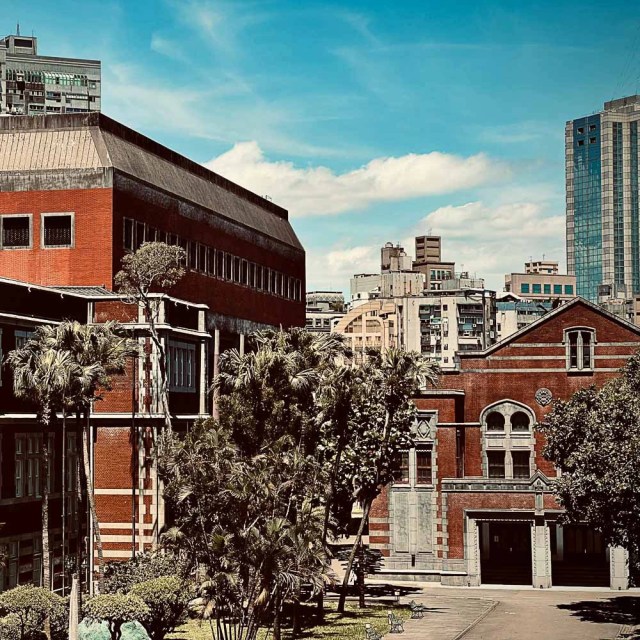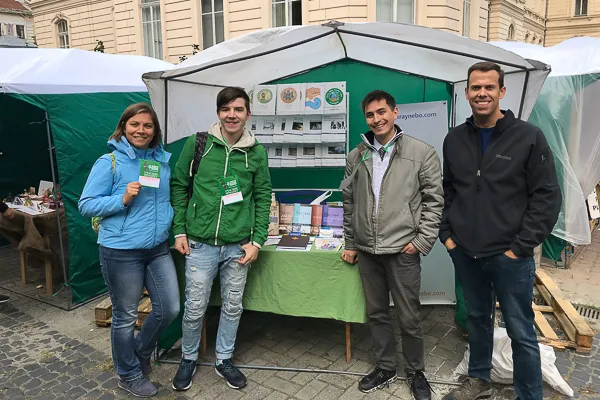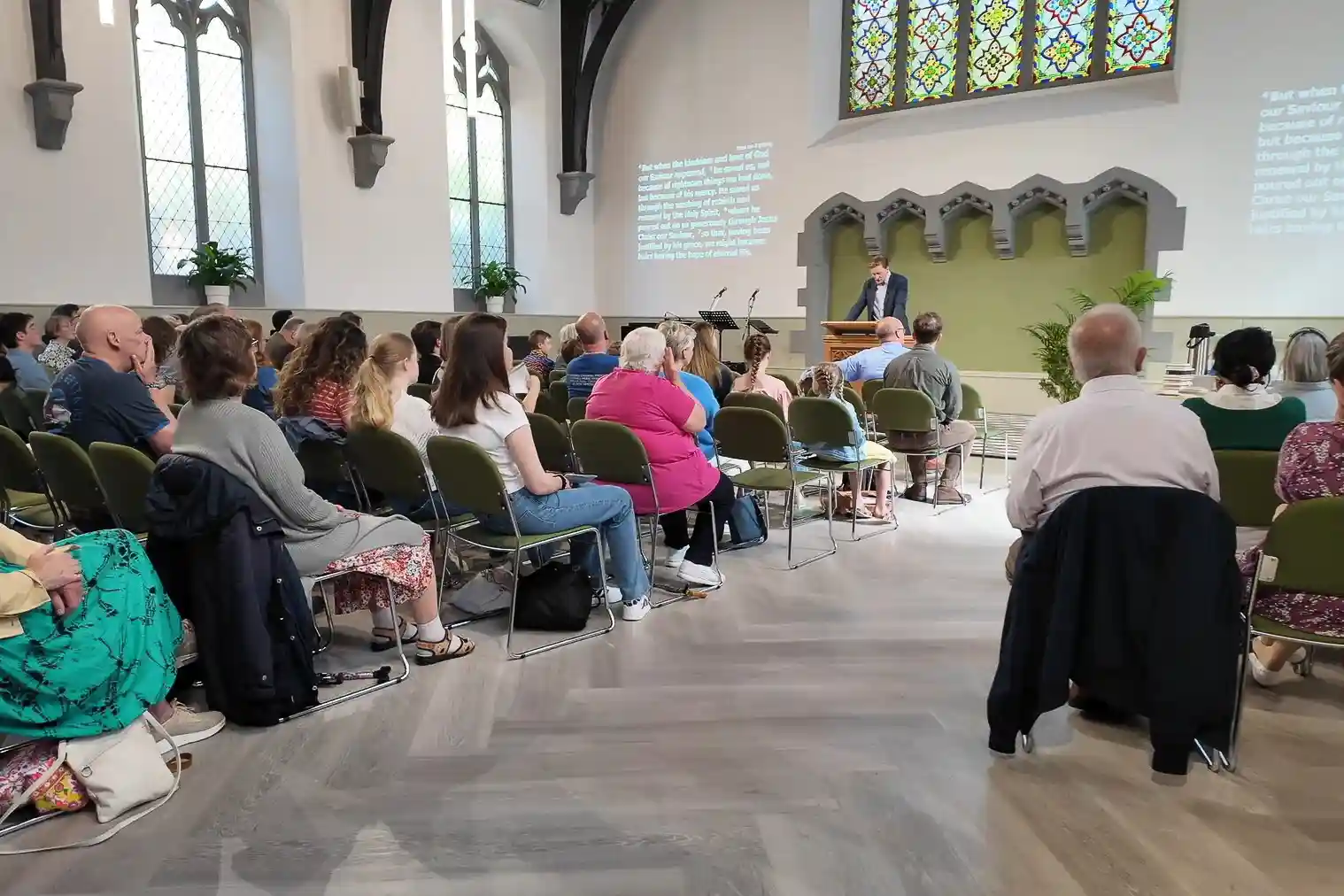The Heart Language of the Quichua

Remnants of a great awakening decades ago, thousands of Quichua churches are scattered throughout the Andean highlands, the riverside villages in the Amazon, and the smoggy urban bustle of Quito, their country’s capital city. The Quichua are the indigenous people of Ecuador, bearing their own distinct culture and identity, and a language family comprised of eight distinct languages in Ecuador alone. Many Quichua churches do not have Bibles in their own language. That is a problem that MTW missionary Rick Aschmann aims to solve.
Based in Quito, and with 37 years of missionary service under his belt, Rick works alongside his wife, Betty, as a church planter and Bible translator. Armed with a laptop and an appetite for obscure grammatical nuance, Rick’s days are made up of a seemingly endless slogging through the nitty-gritty of helping native translators revise the Bible in one Quichua language and do a brand-new translation in another. After working through the tedium of careful edits, these translations can be turned in for printing and distribution.
Those tedious hours and long years of translation raise the question, why is it important that the Quichua have the Bible in their various languages anyway? Why don’t they just read the Bible in Spanish, like most Ecuadorians?
“For the Quichua, their heart language is Quichua, not Spanish,” Rick explained. “A lot of them speak Spanish quite well, but many speak just enough Spanish to get by. And what we see over and over again is that when we teach the Bible in their own language, they get it. It penetrates so much better than in Spanish.”
Redeeming the language of the oppressed
“You know, the Quichua were oppressed, essentially serfs on the land for hundreds of years,” he added. “The land owners were the Spanish speakers, but the Quichua retained their own language and didn’t really learn Spanish. And so now the Quichua kind of think: ‘Oh, Spanish is the good language. Quichua is the low class language.’”
Those centuries of cultural and linguistic oppression and marginalization have taken their toll and left a definite mark on Ecuadorian society. Spanish, the language of the colonizers, has become the language of government, business, and the middle and upper classes. Quichua, the language of the colonized, was repressed for years and was pushed to the periphery of society, though now it is beginning to get some recognition. Language, our vehicle for communication so central to our identities, has become a mark of social status, and Quichua speakers have been told that their language, their identity, marks them as lesser.
“I constantly find myself telling them: ‘the Bible teaches that we’re all equal. There are not high class people and low class people,’” said Rick. “For centuries, they’ve been told and treated like they’re the bottom of the heap. And if you get told something like that often enough you believe it, even if it’s false.”
Awakening their spirit
“I always thought of the Quichua as these very quiet, reserved people who never spoke out,” said Betty, who had previously worked for eight years as a single missionary among Spanish-speaking Ecuadorians. “Then after we were married, I went with Rick to a study he was teaching.”
With the help of a group of native speakers, Rick had translated the Westminster Shorter Catechism into Quichua and was teaching from it.
“I had never seen the Quichua so animated in my life,” said Betty. “They were getting up out of their seats to argue and discuss. They were so excited about what they were hearing, and asking: ‘Is this really what the Bible says? Is this really what you’re supposed to be teaching us?’ They had no idea. They had heard it before in Spanish, but they weren’t sure about the Spanish. They would just sit back and smile and nod and say: ‘Yes, I understand,’ because it was the polite thing to do, but when they heard it in their own language and really understood, they got so excited.”
“When I teach a passage of scripture in Quichua, the whole dynamic changes,” said Rick. “We just see so much that you have to work in people’s heart language.”
That’s why Rick’s translation work is so important, so key.
It’s the purpose behind the endless unique tenses, linguistic gymnastics, and hours poring over the Word of God, the parsing of that holy truth into a mysterious architecture of suffixes and polysyllables and scratches of ink on paper. It’s not simply a matter of making things a little more convenient for the Quichua, it’s a matter of building the tools that enable God’s Word to truly penetrate hearts.
While multiple Quichua translations have been done at various points over the years, many had problems and most are no longer in print, leaving hundreds of thousands of native speakers without any Bibles available in their language. Now, alongside native speakers, Rick is one of the key editors in a project to re-translate the Bible into the Imbabura Quichua language.
“It’s going to be made available again after more than 10 years of never being able to buy Bibles in Imbabura,” said Rick. “The same thing is true of the Central Highland Quichua language, and there are at least a million speakers.”
For the thousands of little Quichua churches scattered across Ecuador, having the Bible translated well, printed, and made available in their heart language matters enormously. It impacts the health of churches that have struggled for years to learn from Spanish Bibles they can scarcely understand, and it transforms Quichua Christians’ understanding of themselves and their place in God’s kingdom—that Christ’s message of hope is for Quichua speakers as much as for Spanish speakers, that they too are children of God.








